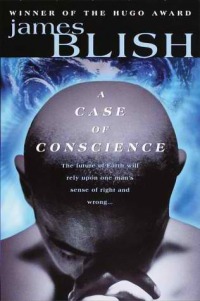Tenth of December by George Saunders
 Friday, January 11, 2013 at 9:17PM
Friday, January 11, 2013 at 9:17PM 
Published by Random House on January 8, 2013
Sometimes morbid, sometimes zany, often touching, and always original, the stories collected in Tenth of December are written in a light, conversational style -- typically the kind of conversation you'd have with someone who is a little dim -- that conceals their deeper meaning. Many of the characters are like the parents or children you're glad you never had.
My favorite story, "Victory Lap," begins in the mind of Alison, a fifteen-year-old girl whose internal commentary on Eleanor Roosevelt, her ethics teacher's husband's affair, her own ignorance, and the dorkiness of Kyle Boot is, to use Alison's favorite word, awesome. The story then shifts to the scattered mind of Kyle Boot (favorite word: "gar"), whose chance of pleasing his anal-retentive father is nil and whose thoughts are filled with imaginative curses that he would never dare say out loud. When Kyle sees a man trying to kidnap Alison, he must choose between intervening and finishing his chores. The story develops a new layer of oddness when we enter the mind of the kidnapper. The ending is surprisingly sweet as humor and horror give way to karma.
The title story is another standout. Robin is a pale, blubberish boy who invents his own martial arts system (Deadly Forearms) to fight the Nethers. Eber, old and rail-thin, no longer seems real to himself. Both Robin and Eber constantly engage in silent, imagined conversations. When Robin spots Eber (thinking he may be a Nether) walking around a frozen pond, Robin makes it his heroic mission to deliver Eber's coat to him without realizing why Eber left the coat behind. The story is a bittersweet combination of humor and sorrow and inspiration.
In another close contender for my favorite story, Mikey comes "Home" from the war after a court-martial, just in time to watch his mother and her new boyfriend being evicted. The mother of his kids has taken up with a new boyfriend in his absence. His barely contained rage results in low-level violence, but his actions are inevitably greeted with the ubiquitous (and thus meaningless) phrase "Thank you for your service." None of that sounds amusing, but this serious story provokes unexpected laughter. It's better, I guess, to laugh than to cry.
I first read "Escape from Spiderhead" in The Best American Short Stories 2011. Saunders' futuristic take on chemically enhanced language and love was one of my favorite stories in that volume.
The remaining stories are all worth reading. More a vignette than a story, "Sticks" describes the way the narrator's father decorates a pole to commemorate Christmas, the Fourth of July, Veteran's Day, the Superbowl, Groundhog Day, an Earthquake in Chile, his wife's death, and, ultimately, his life. "Al Roosten" worries that noboby will bid on him at the anti-drug celebrity auction -- in fact, he worries about all sorts of things when his mind isn't buzzing with nonstop grandiose fantasies. A janitor in a medieval village is promoted to Pacing Guard after he witnesses his boss engaging in a sexual dalliance with another employee, a happy event that leads to "My Chivalric Fiasco" when he gets carried away with the role. The lives of two moms who are each doing their best, albeit in very different ways, intersect in "Puppy." Saunders takes a comical look at the power of positive thinking, in form of a memo from the boss, in "Exhortation."
Every story in Tenth of December is the product of a delightfully strange imagination, the work of an accomplished writer with a distinctive style. This is a collection of small gems that perfectly balance plot and character development. There isn't a dud in the bunch.
RECOMMENDED



